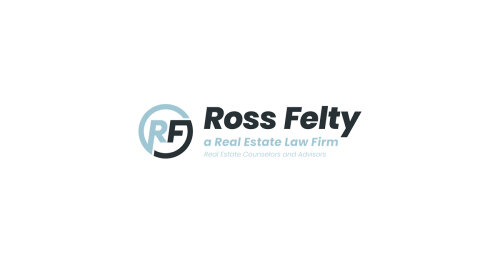Best Government Relations & Lobbying Lawyers in Florida
Share your needs with us, get contacted by law firms.
Free. Takes 2 min.
Or refine your search by selecting a city:
List of the best lawyers in Florida, United States
About Government Relations & Lobbying Law in Florida, United States
Government relations and lobbying law in Florida covers the ways individuals, organizations, and businesses interact with state and local government officials to influence legislative, administrative, or regulatory actions. Lobbying is a legitimate and regulated activity that allows the public and private sectors to have a voice in policy and decision-making processes. In Florida, these activities are subject to specific rules and oversight to promote transparency, ethical conduct, and responsible advocacy in government affairs.
Why You May Need a Lawyer
Navigating government relations and lobbying in Florida involves complex legal requirements. You may need a lawyer if you plan to advocate for new laws, seek to influence regulations, or interact with state or local officials on behalf of yourself or your organization. A legal professional can help if you are unsure about registration requirements, need to ensure compliance with ethics laws, or face an investigation related to lobbying activities. Having a lawyer also helps safeguard your interests and provides guidance on the best strategies to achieve your advocacy goals while remaining within the legal boundaries.
Local Laws Overview
Florida has comprehensive laws governing lobbying and government relations, notably through Chapter 112 (Ethics in Government) and Chapter 11 (Lobbyists) of the Florida Statutes. Key aspects include mandatory registration and reporting for most lobbyists, strict gift-giving restrictions, and disclosure requirements about expenditures and clients. Both state-level and local governments, including many counties and municipalities, maintain their own lobbying regulations and ethics codes. Violations can result in penalties, sanctions, and potential criminal charges. Therefore, understanding and adhering to both state and local requirements is essential for anyone participating in lobbying activities in Florida.
Frequently Asked Questions
What is lobbying in Florida?
Lobbying in Florida is defined as seeking to influence the decision-making of state or local government officials or agencies on behalf of a client or employer, typically in relation to legislation, regulation, or procurement.
Who is considered a lobbyist in Florida?
A lobbyist is anyone who is paid or has an agreement to be paid for seeking to influence government decisions or actions before the legislative or executive branches, or certain local governments. This includes employees, independent contractors, and consultants.
Do lobbyists need to register in Florida?
Yes, lobbyists must register with the appropriate bodies before engaging in lobbying activities. Registration is required for both the Florida Legislature and the Executive Branch and often for certain county and municipal governments.
What information must lobbyists disclose in Florida?
Lobbyists must disclose their clients, compensation, and any expenditures related to lobbying efforts. Regular reports must be filed detailing these activities.
Are there restrictions on gifts and expenditures?
Florida law restricts gifts from lobbyists to government officials, including outright prohibitions and limits on value. All gifts and expenditures must be reported as part of lobbying disclosure requirements.
What are the penalties for violating lobbying laws in Florida?
Penalties can include fines, suspension from lobbying, reputational harm, and referral to law enforcement for criminal prosecution if the violation involves corruption or fraud.
Do local governments in Florida have their own lobbying rules?
Many counties and cities in Florida, such as Miami-Dade and Broward, have additional local registration, reporting, and ethics rules. It is important to check local ordinances wherever you plan to lobby.
What ethical standards do lobbyists need to follow?
Lobbyists in Florida must comply with conflict of interest rules, accurately report their activities, refrain from improper influence, and uphold high professional standards as outlined in state law and ethics codes.
Can individuals lobby without being paid?
Unpaid individuals who lobby on their own behalf typically do not have to register. However, if representing an organization or working in an official capacity, registration may still be required, and it is best to consult legal professionals to clarify obligations.
How can a lawyer help with lobbying compliance?
A lawyer can help interpret complex laws, ensure compliance with all registration and reporting requirements, advise on ethical considerations, represent you in investigations, and craft effective advocacy strategies while minimizing legal risks.
Additional Resources
People seeking guidance on government relations and lobbying in Florida may benefit from the following resources and organizations:
- Florida Commission on Ethics
- Florida Senate Office of Legislative Services
- Florida House Lobbyist Registration Office
- Florida Department of State
- The Florida Bar - Section on Governmental and Public Policy Advocacy
- Local government websites for specific city and county lobbying requirements
Next Steps
If you need legal assistance with government relations and lobbying in Florida, start by identifying your advocacy goals and gathering any related documents or correspondence. Research and contact lawyers or law firms with experience in government relations and lobbying law. During your consultation, ask about their experience handling compliance, registration, and investigations. Stay proactive in monitoring changes in the law and always follow both state and local requirements. A knowledgeable attorney will help you navigate the regulatory environment, keep your advocacy efforts compliant, and effectively represent your interests before government bodies.
Lawzana helps you find the best lawyers and law firms in Florida through a curated and pre-screened list of qualified legal professionals. Our platform offers rankings and detailed profiles of attorneys and law firms, allowing you to compare based on practice areas, including Government Relations & Lobbying, experience, and client feedback.
Each profile includes a description of the firm's areas of practice, client reviews, team members and partners, year of establishment, spoken languages, office locations, contact information, social media presence, and any published articles or resources. Most firms on our platform speak English and are experienced in both local and international legal matters.
Get a quote from top-rated law firms in Florida, United States — quickly, securely, and without unnecessary hassle.
Disclaimer:
The information provided on this page is for general informational purposes only and does not constitute legal advice. While we strive to ensure the accuracy and relevance of the content, legal information may change over time, and interpretations of the law can vary. You should always consult with a qualified legal professional for advice specific to your situation.
We disclaim all liability for actions taken or not taken based on the content of this page. If you believe any information is incorrect or outdated, please contact us, and we will review and update it where appropriate.
Browse government relations & lobbying law firms by city in Florida
Refine your search by selecting a city.

















